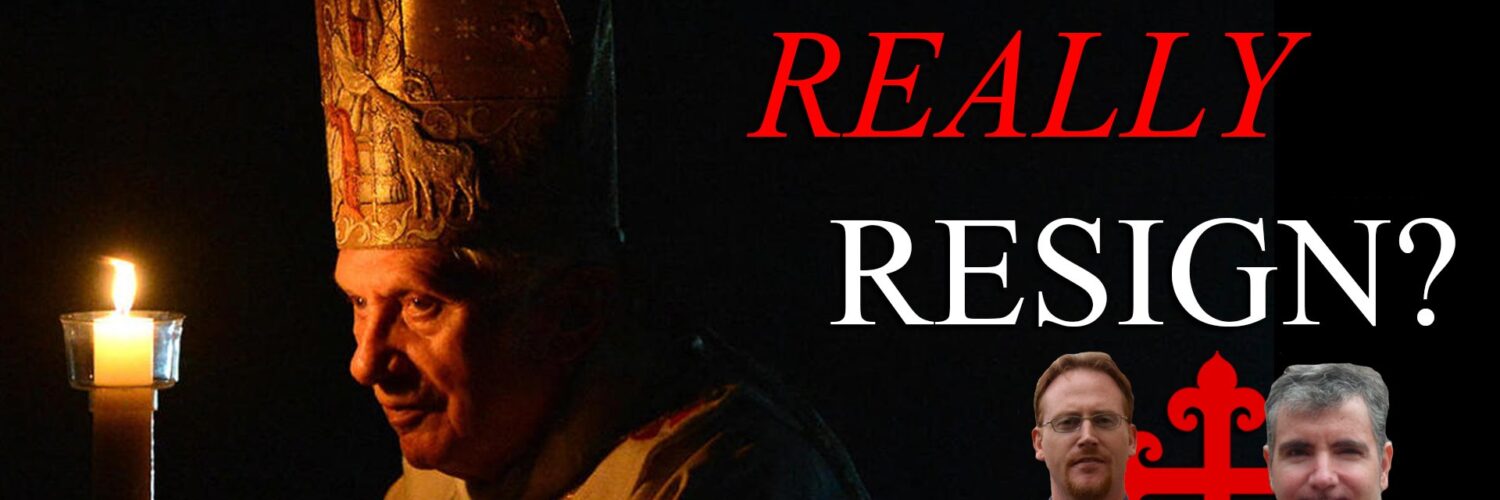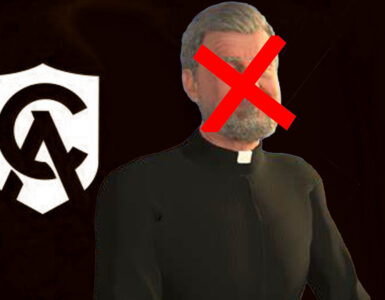Christ is risen! This past Monday, I enjoyed engaging in a friendly debate with Dr. Edmund Mazza on the subject of Pope Benedict XVI’s resignation. Many thanks to Mike from Restoring the Faith Media for hosting!
As readers may know, Dr. Mazza has become known in recent years for championing the position the Benedict XVI did not validly resign the Petrine office due to what Canon Law calls “substantial error” (can. 188). Steven O’Reilly, author of Valid? The Resignation of Pope Benedict XVI (2022), accurately sums up the position in his book (p. 47):
“Pope Benedict XVI held erroneous views about the papacy even before he was elected pope, by which he erroneously believed the papacy could be ‘bifurcated’ into a papal diarchy, comprised of an active and a contemplative component. Benedict attempted to retain either a part or the whole of the papal munus when, in the Declaratio, he resigned the Petrine ‘ministry’ (ministerio), signaling that he intended to resign only the ‘active ministry’ (ministerio) while retaining the Petrine office (munus) in whole or in part. However, given it is impossible to split the papacy, Benedict’s attempted partial resignation constituted a ‘substantial error’ which invalidated his resignation per Canon 188.”
For my part, I hold that Pope Benedict’s resignation was indeed valid, as was the election of Pope Francis. I base my position on three fundamental facts:
- In his Declaratio (Feb. 11, 2013), Benedict stated that “the See of Rome, the See of Saint Peter, will be vacant” as a result of his act of renunciation, and that “a Conclave to elect the new Supreme Pontiff will have to be convoked by those whose competence it is.”
- Not a single Cardinal-elector challenged the validity of Benedict XVI’s resignation. On the contrary, they proceeded to do exactly what he said they would, namely, convoke a conclave and elect a new Supreme Pontiff.
- Immediately following his election, Pope Francis was peacefully and universally accepted as Benedict’s true successor by the Church, beginning with all the Cardinal-electors. In the words of the renowned Jesuit canonists Fr. Francis X. Wernz (1842-1914) and Fr. Peter Vidal (1867-1938), this is “a sign and an infallible effect of a valid election” (Ius Can., II, p. 520, note 171).
Cardinal Louis Billot, S.J. (1846-1931), the renowned French theologian who served in the Holy Office under Pope St. Pius X (r. 1903-1914), expounds upon the nature and authority of peaceful and universal acceptance in Tractatus de Ecclesia Christi, his classic work on ecclesiology.
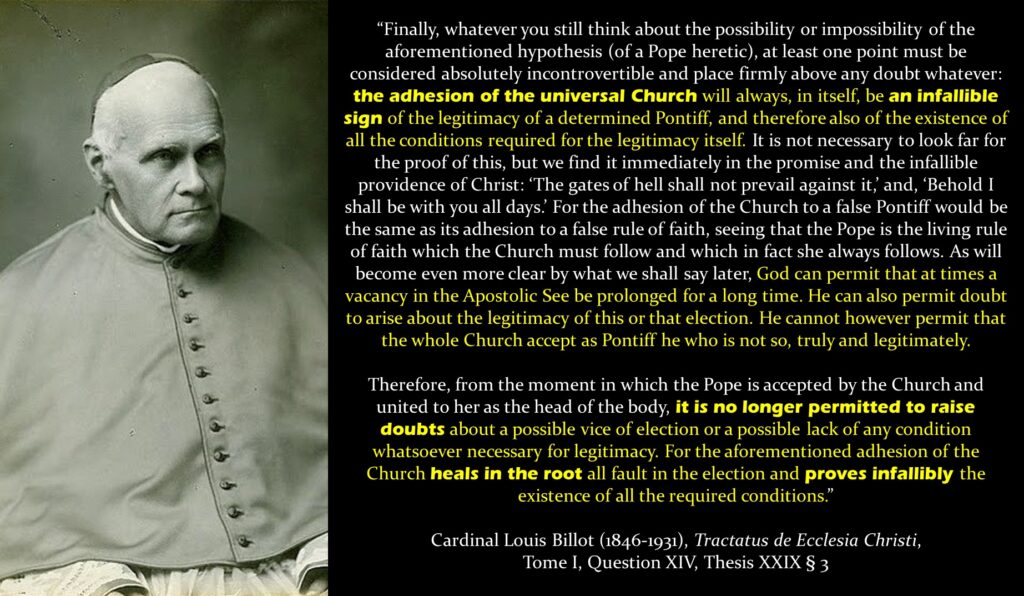
I covered Benedict’s resignation and Francis’ election in a lengthy two-part series that appeared in the February and March 2024 issues of CFN (subscribe HERE and gain instant access to the digital edition of the current paper plus an archive of back issues).
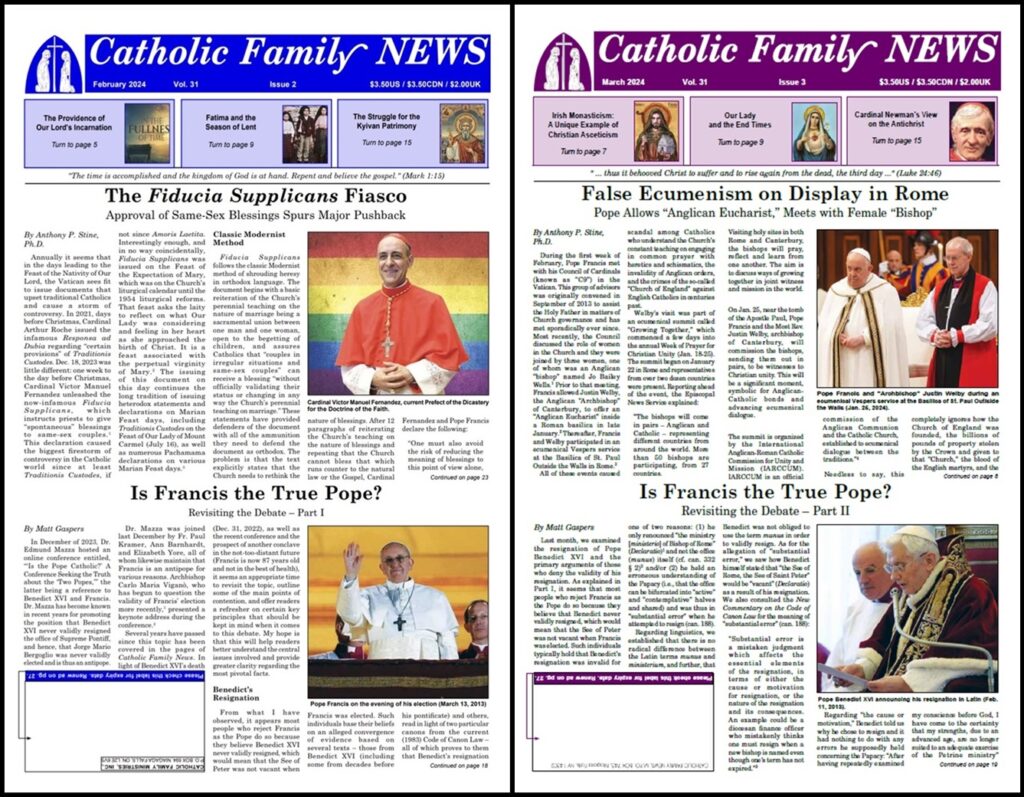
I’m very pleased with the feedback we’ve received thus far on the debate, for example:
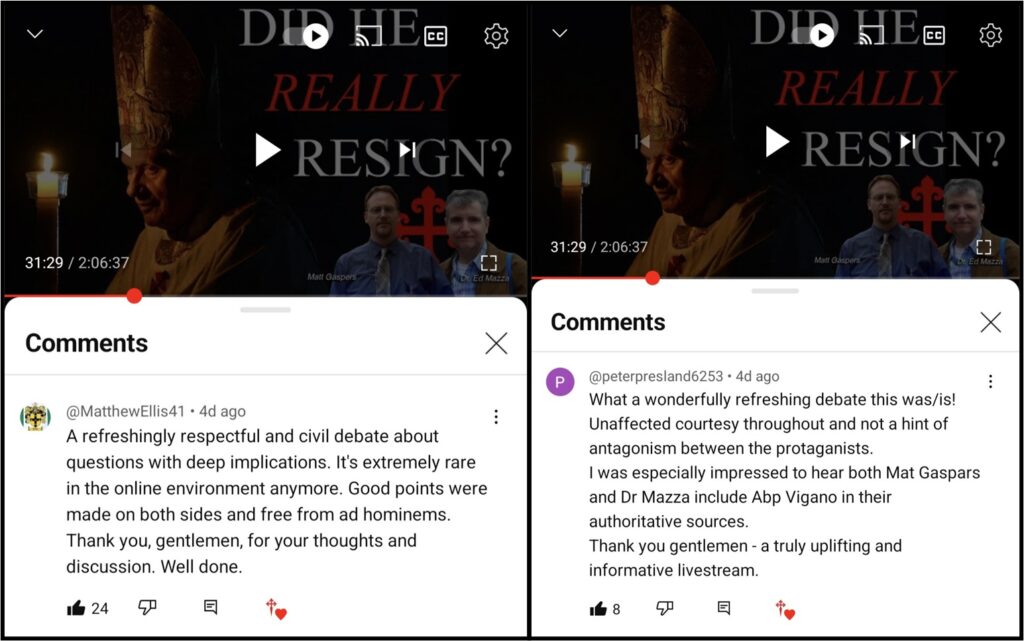
If you enjoy the debate, be sure to leave a comment and let us know.
Christus surréxit! Surréxit vere, alleluia!
Support CFN by purchasing from Sophia Institute Press USING THIS LINK


